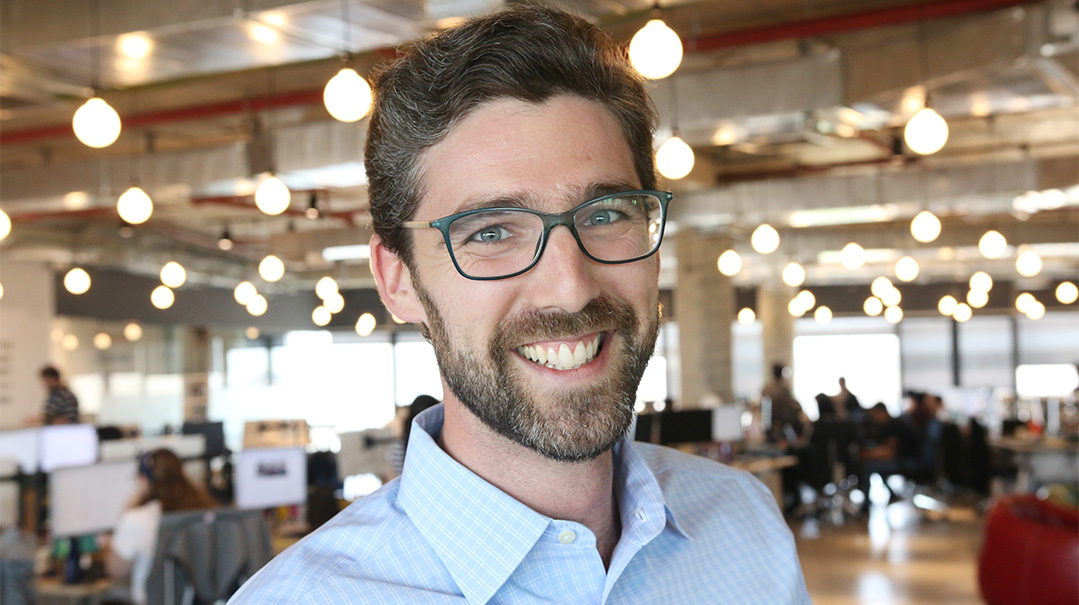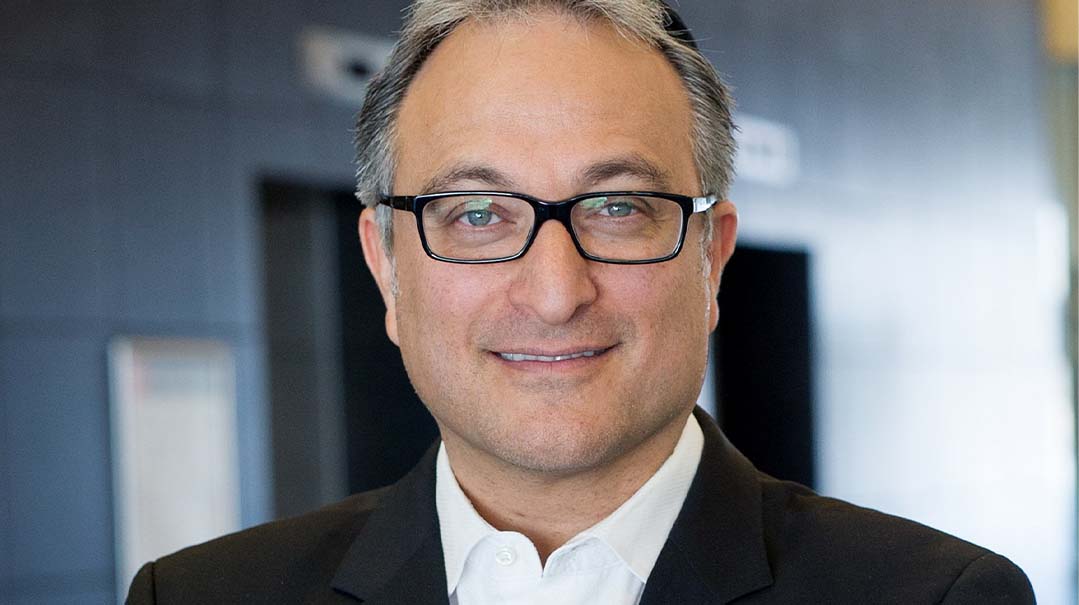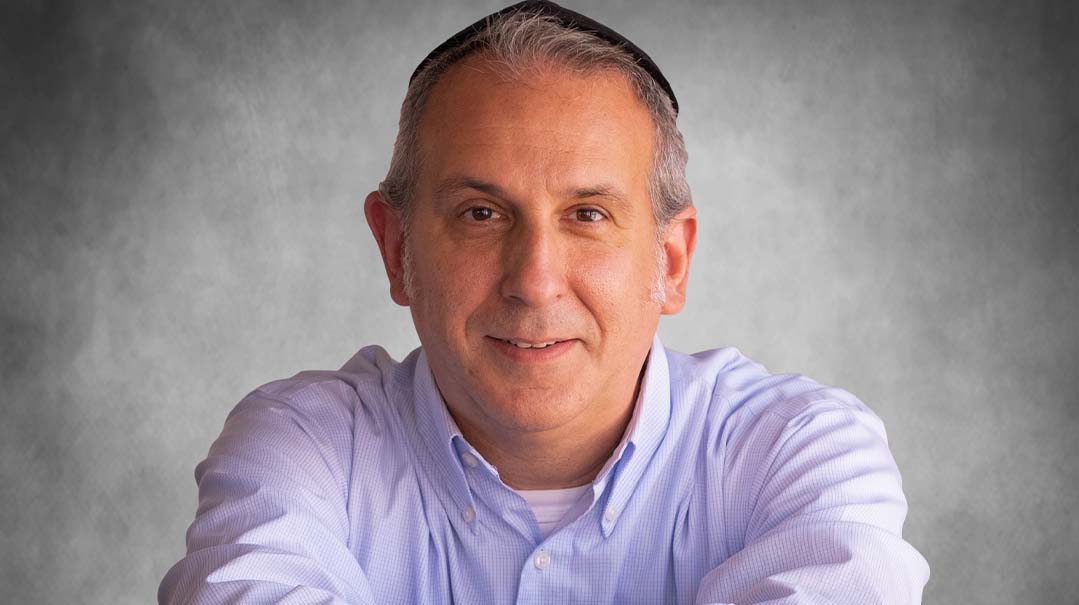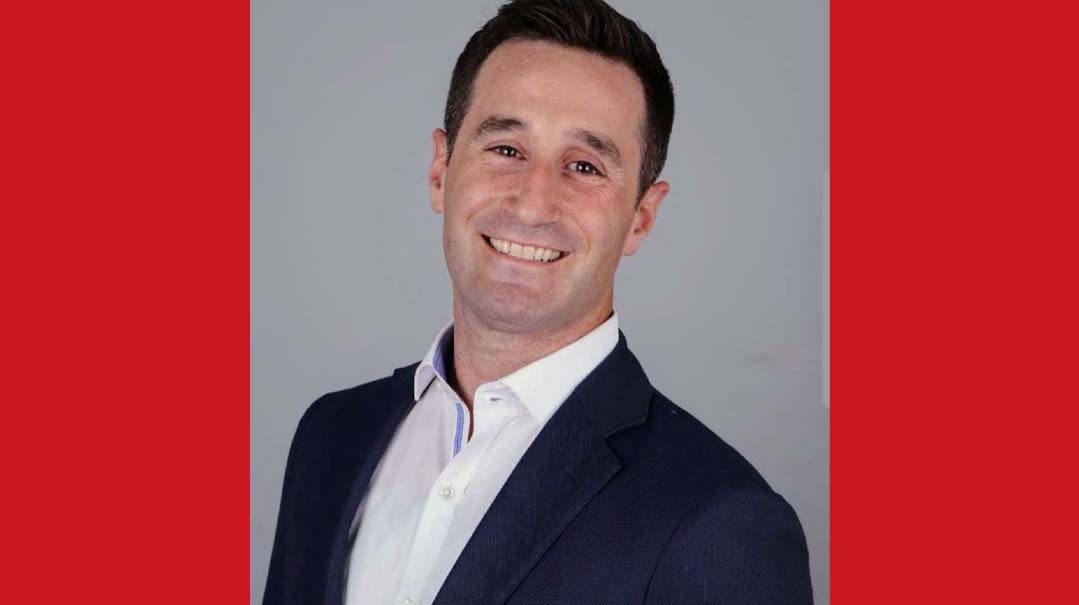Work/Life Solutions with David Magerman

"If 'success' doesn’t lead to a satisfying life outcome, then maybe you are trying to solve the wrong problem"
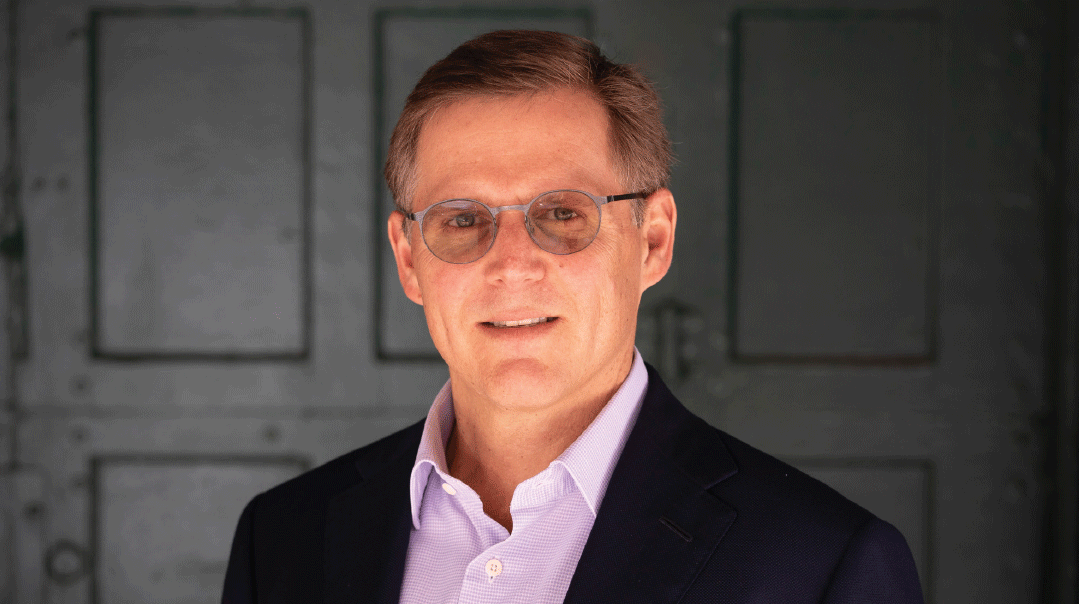
Who: David Magerman, managing partner at Differential Ventures and former quantitative manager at Renaissance Technologies — a $75 billion hedge fund.
What: After earning his PhD in computer science from Stanford University, David spent two decades at one of the world’s most secretive, powerful, and successful hedge funds, Renaissance Technologies. During that time, he developed optimization algorithms for trading financial instruments, assisted in the development of statistical models for predicting the movements of stock and commodity prices, and was a member of the company’s management committee, essentially helping Renaissance earn its stellar reputation. And since his departure in 2017, he’s joined Differential Ventures (an early-stage VC fund) as their managing partner and CTO, and he remains active in various philanthropic efforts within the greater Jewish community.
Where: David was born in Brooklyn, spent most of his childhood in South Miami, and then moved to Philadelphia to attend the University of Pennsylvania, where he received his BA in mathematics and BS in computer science. David remained in Philadelphia, where he now lives with his wife Debra and their four children.
Why: David’s story inspires me. He grew up in a Conservative home and was “bar-mitzvahed,” but by the time he went to university he’d lost all connection to Judaism. After getting married, though, he discovered that his wife wanted to keep a kosher home, an idea he went along with. Then, when he visited Israel for a cousin’s bar mitzvah and couldn’t understand any of the Torah his religious cousins were talking about, he felt like “a kindergartener in a room full of college students.” A researcher and truth-seeker at heart, he yearned to fill that void, so when someone suggested he get a chavrusa through Partners in Torah, he jumped at the opportunity. That was 15 years ago, and David and his family have continued their quest for spiritual growth ever since, shifting tracks to lead a true Torah lifestyle and committing to generously support Jewish day schools and educational programs. The same character traits that drove David to lead a super-successful career also drove him to be a “super-successful” Torah Jew.
1 of 9 What opportunities or personalities played a key role in your career?
My parents. My mother taught me determination and loyalty, and my father taught me about work ethic and overcoming obstacles. In college, a professor, Max Mintz, did an amazing thing for me — he recognized my aptitude for computer science, took me under his wing and offered me opportunities to do research as an undergraduate. Even though he had his own research lab and could have simply invited me to work there, he instead asked me to look around at the different research labs in the department and let him know which one I was most interested in. I picked a different lab, and he happily introduced me to the director of that lab, where I ended up doing important research, both for my career and for my chosen field.
I would say the single most influential personality who impacted my career was Peter Brown, the manager of an adjacent group at IBM when I was a summer student, and then research scientist during my graduate school years. Even though I didn’t work directly for him, I spent a lot of my time at IBM learning from him. (His unique management style has been documented in a recent book about Jim Simons, billionaire founder of Renaissance Technologies.) Peter taught me the value of creativity, dogged determination, faith in math and science, and thorough (and sometimes vicious) testing of ideas by a gauntlet of interrogators. But he also taught me negative lessons — how the drive for success and achievement above all else was ultimately personally destructive, for him, for me, and for those around us. In many ways, both positive and negative, the experience I had working under him made me the scientist, manager, and leader I am today.
2 of 9 Which three character traits have played a key role in your career path?
Integrity. In places I worked, I became known as someone who would take on any challenge, regardless of the cost, to defend a principle I believed in (even if those principles were misguided). Looking back, the jobs I took, the roles I ended up playing, and the place I find myself today are largely due to that drive to uphold principles I believe in or obligations I feel bound to.
Work ethic. I can be lazy if I don’t feel driven to accomplish a task, but when I have a job to do, nothing will stop me from trying to complete it. My bosses frequently took advantage of this, using their knowledge of my psychological makeup to goad me into working relentlessly to solve problems. For that, I thank them. When I’m driven in a positive direction to solve a problem or complete a task, I can accomplish great things. But I’m ultimately a worker, a field general, someone who needs to be driven to solve problems. When a yolk is put on my back, I can pull a heavy load a long distance.
Insecurity. I grew up in humble surroundings with a persistent sense that I deserved a better situation than I had, while simultaneously feeling like a fraud who wasn’t worthy of whatever accolades I had earned or whatever accomplishments I appeared to have made. I felt slighted for not getting into Harvard or MIT, which drove me to try to prove my worthiness while at Penn. But I also felt my early research successes were undeserved, and spent the rest of my academic career trying to do something “real.” I lived in constant fear of failure at Renaissance, striving for perfection in a difficult and complex role, to avoid being called out as a fraud and inadequate for the responsibility I had been given. I’ve always felt (and still feel) that I have worked with people much smarter than I am, but my combination of nominal intelligence, engineering skills, work ethic, and luck (being in the right place at the right time) have been responsible for my success.
3 of 9 What do you do to relax, recharge, or simply have fun? How do you make time for that, and how often?
I am really bad at relaxing and having fun. To relax, I mostly read, either science fiction, historical fiction, sometimes history, and occasionally Torah-themed texts. The most fun I have is playing games with my wife and my kids, and social events where I have deep and interesting conversations with friends. But I usually forget how fun and relaxing those activities are. Thank G-d for Shabbat, which causes me to engage in all of those activities, in different proportions, for at least a day every week. If not for Shabbat, I probably would almost never relax.
4 of 9 What was your most resounding failure? What did you take away from that experience?
My early efforts at philanthropy and community leadership, culminating in my failed attempt to prevent the merger of two middle schools in my community. I had been an outsized financial supporter of both schools, and I attempted to use my financial resources to influence the outcome of the proposed merger, which would have eliminated the most desirable middle-school option for my kids. I held lots of backroom conversations with key players, trying to buy the outcome with my philanthropy. My efforts culminated in a humiliating public meeting where I basically tried to bribe the community into achieving an outcome based on the votes of parents, instead of allowing the institutions to negotiate the merge among their leadership.
What I learned from this public humiliation, as well as some of my other less obvious failures at philanthropy and community leadership, is that communal institutions are not for sale like companies. Philanthropic gifts need to be gifts supporting institutional missions, not attempting to redirect or derail them. Philanthropists need to be donors and supporters, not activist shareholders threatening to topple leadership and bankrupt institutions if they don’t fall in line with donor requests. Instead, donors should find organizations whose missions they can support and give unrestricted gifts that those organizations can use to support their missions.
In business, my biggest failures have been in my angel investing. Every company I have invested in directly has gone to zero and failed. The lesson I have learned from this early angel investing is that easy money provided without proper governance and oversight leads to laziness, removes needed urgency, and deters discipline. When I invested in companies, and they started missing targets and metrics, I accepted excuses and even put in more money to give them more leeway in the hopes they would succeed. But what they needed was more tough love and discipline, and real fear of the consequences of failure.
5 of 9 If you were granted an extra three hours per day or a spare million dollars, what would you do with that time or money?
I’m a bad guy to ask about giving a spare million dollars, since money isn’t a scarce resource for me. Thank G-d, I have more than I need, and give away what I make these days. If I got an extra million dollars, I would find a worthy charity that fell below my threshold for giving and give it to them, or spread it around the worthy organizations I support. Perhaps I’d find a few speculative early-stage companies and give them a chance to prove themselves with a pre-seed investment.
Time is another story. If I had an extra three hours per day, I would spend an extra hour studying more Torah, an extra hour reading a book about a technical topic that I need to learn that I don’t make time for, and the third hour for a good nap.
8 of 9 Can you share a time when you had to navigate the tension between your deepest values and the business world?
I used to work for a company run by a CEO who was very good at his job, treated me and others around him very well, but had (in my opinion) abhorrent social views about civil rights, minorities, women, and the general structure of society. When I discovered he was using his outsized wealth (he was likely more than a billionaire) to influence the US presidential elections and install an administration surrounded by his personally selected team of advisors, I had to confront this reality. While my company forbade employees to speak publicly about management, I felt a moral obligation to inform the public that the enigmatic, secretive donor behind the president had specific worldviews that many people would find offensive, and that information might at least cause people to pay more attention to the policies the president was supporting, and to the people around him who were proposing and implementing them.
I lost my job, endured a painful yearlong battle to recover benefits I was entitled to, and lost my relationship (such as it was) with every person I’d worked with in my 20-year career at the company, but I don’t regret it for a second. I did what I had to do to sleep at night. And I learned that work colleagues aren’t really friends, unless both parties do the work necessary to make real friendships. I thought I had dozens of friends, of varying levels, at my company. I learned that I had none. It was a painful lesson, but definitely one worth learning, and one that I can use looking forward.
9 of 9 If you were advising a young man/ woman hoping to launch a career as an entrepreneur, which “do’s” and “don’ts” would you share?
I always tell entrepreneurs to plan for success. This has multiple meanings. First, have a business model that doesn’t fall apart with outsized success. Many people have business ideas that only work if they can stay under the radar and avoid excessive attention, from competitors and from counterparties they are using in a parasitic way (e.g. scraping data from websites, violating terms of service in innocuous but real ways, etc.). If their business plan falls apart if they become too successful, they need to plan for that hopeful eventuality. But I also tell entrepreneurs to consider how they will feel in ten years if they succeed beyond their wildest dreams with whatever their professional plan is.
If I had told my younger self 20 years ago that by going into hedge fund management, I would have outsized wealth beyond my wildest expectations, but that I would never be able to publish my work, share it with a community of practitioners, and could never teach others how to benefit from what I learned, I would have thought twice about it. Most young entrepreneurs think about the problems in front of them and how to overcome them, but don’t think about what it will mean to them if and when they overcome them and succeed. If “success” doesn’t lead to a satisfying life outcome, then maybe they are trying to solve the wrong problem. I certainly feel like I did.
(Originally featured in Mishpacha, Issue 802)
Oops! We could not locate your form.







